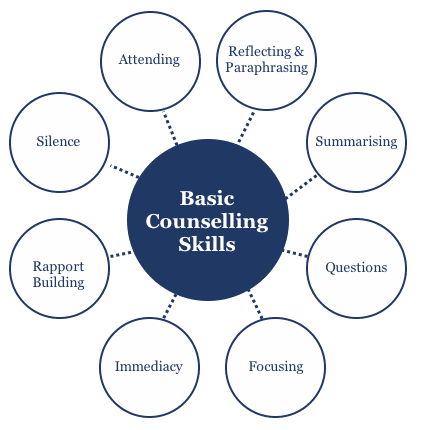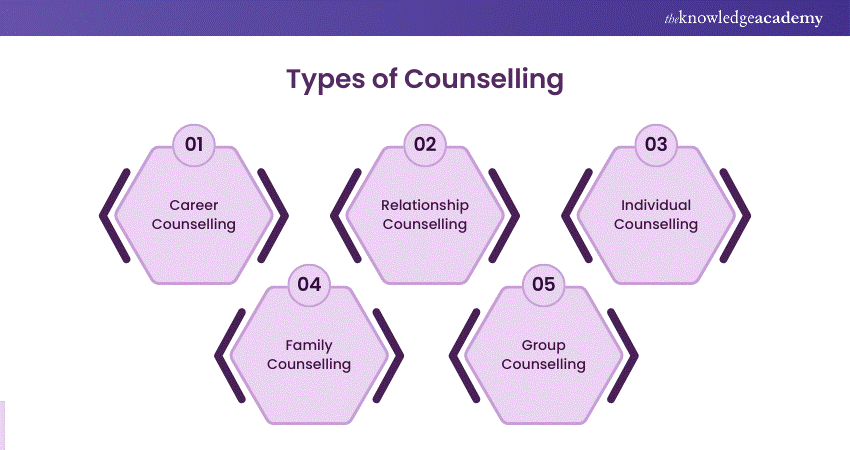A Comprehensive Guide to the Numerous Types of Therapy and Their Influence
Therapy incorporates a range of therapeutic techniques, each created to meet special psychological health needs. From the organized techniques of Cognitive-Behavioral Treatment to the empathetic nature of Person-Centered Treatment, these techniques use distinct pathways to individual growth. Family therapy and Dialectical Behavior Therapy supply added structures for recovery, while team therapy cultivates community assistance. Recognizing these diverse methods can brighten their extensive effect on private health. What remains to be discovered are the intricacies of each technique.

Comprehending Cognitive-Behavioral Therapy (CBT)
Although numerous healing approaches exist, Cognitive-Behavioral Therapy (CBT) sticks out because of its organized, ambitious nature. This form of therapy is based on the premise that thoughts, sensations, and habits are adjoined, and by changing unfavorable thought patterns, people can alter their emotional responses and activities. CBT uses numerous techniques, such as cognitive restructuring, which assists clients recognize and challenge altered beliefs. Behavioral activation urges interaction in satisfying tasks to combat anxiety.
Usually, CBT is a temporary therapy, typically long lasting in between 12 to 20 sessions, making it obtainable for those looking for fast outcomes. Its efficiency has been well-documented in dealing with anxiousness problems, anxiety, and other psychological wellness issues. The specialist's function is to lead clients through exercises and research jobs, cultivating self-awareness and advertising lasting coping methods. This functional technique encourages people to take control of their psychological health, ultimately bring about improved life satisfaction.
Discovering Person-Centered Therapy
Person-Centered Treatment, created by Carl Rogers, provides a different technique to Cognitive-Behavioral Therapy by stressing the customer's subjective experience. This healing design prioritizes the person's point of view, cultivating an atmosphere of empathy, genuine positive respect, and authenticity. By permitting customers to explore their feelings and ideas without judgment, therapists help with individual development and self-discovery.
The core tenet of Person-Centered Therapy is the idea that people possess the intrinsic capacity for self-healing and personal growth. In this setup, the therapist acts as a supportive overview as opposed to a regulation authority, motivating customers to take fee of their very own journey. This approach is specifically efficient for those coming to grips with problems such as reduced self-esteem, stress and anxiety, or clinical depression, as it empowers them to challenge and understand their emotions. Inevitably, Person-Centered Therapy cultivates a solid therapeutic partnership, promoting trust and visibility vital for significant change.
The Role of Family Members Treatment in Recovery
Family members treatment works as a vital element in the recovery procedure for individuals and their relationships. This restorative approach focuses on improving communication, resolving conflicts, and fostering much deeper connections amongst relative. By dealing with dysfunctional characteristics, family members therapy motivates each participant to reveal their thoughts and sensations in a safe atmosphere, advertising understanding and empathy.

The impact of family therapy expands past the sessions, as improved relationships can bring about enhanced emotional health for all entailed. Generally, family therapy plays a crucial duty in recovery by cultivating unity, strength, and shared support among relative, ultimately guiding them toward a healthier, much more fulfilling life with each other.
Unpacking Dialectical Behavior Modification (DBT)
Building on the structure of restorative strategies that improve emotional well-being, Dialectical Behavior modification (DBT) offers an organized framework for individuals having a hard time with intense emotions and behavioral difficulties. Developed by Marsha Linehan, DBT incorporates cognitive-behavioral strategies with mindfulness techniques, aiming to assist clients manage overwhelming sensations and enhance interpersonal effectiveness.
The treatment is specifically useful for those diagnosed with Borderline Character Problem but is also suitable to an array of various other mental health and wellness issues. virtual therapy. DBT consists of private treatment sessions and abilities training teams, concentrating on four vital ability: mindfulness, distress resistance, feeling guideline, and interpersonal efficiency
The Advantages of Group Therapy Procedure
While private therapy supplies useful understandings, team counseling sessions supply one-of-a-kind advantages that can considerably enhance the restorative go now experience. One vital benefit is the feeling of neighborhood that arises among individuals. Individuals frequently discover comfort in sharing their experiences with others facing comparable obstacles, cultivating a helpful environment that reduces feelings of isolation.
Furthermore, team sessions urge diverse viewpoints, permitting participants to gain from each other's coping strategies and insights. This cumulative knowledge can cause boosted analytic abilities and a more comprehensive understanding of individual problems.
Furthermore, group counseling typically advertises accountability, as members motivate one an additional to seek their objectives and stick to their commitments. The cost-effectiveness of team therapy makes it an obtainable option for numerous people seeking support. Overall, the collaborative nature of group counseling sessions can substantially improve the therapeutic trip.
Often Asked Inquiries
What Qualifications Do Specialists Need to Exercise Therapy?
Therapists normally need a relevant level in psychology or therapy, in addition to monitored clinical experience. Additionally, they should obtain appropriate licensure or certification to exercise legitimately, ensuring adherence to specialist standards and ethical standards.
Just how Do I Pick the Right Type of Therapy for Me?
Picking the best type hop over to here of therapy involves evaluating personal requirements, exploring various techniques, considering specialist specializeds, and seeking suggestions. Recognizing private objectives and choices can greatly enhance the efficiency and fulfillment of the restorative experience.

Are Online Counseling Sessions as Effective as In-Person Ones?
The effectiveness of online counseling sessions contrasted to in-person ones usually relies on individual choices and situations. Study suggests that both techniques can yield favorable end results, though some may discover higher convenience in face-to-face communications.
How Much Time Does Counseling Usually Last?

What Should I Anticipate Throughout My Very First Counseling Session?
Throughout the first therapy session, customers can anticipate an intro, conversation of their worries, establishment of objectives, and a summary of the therapy process - adhd counselling. go This initial meeting aims to construct rapport and warranty comfort